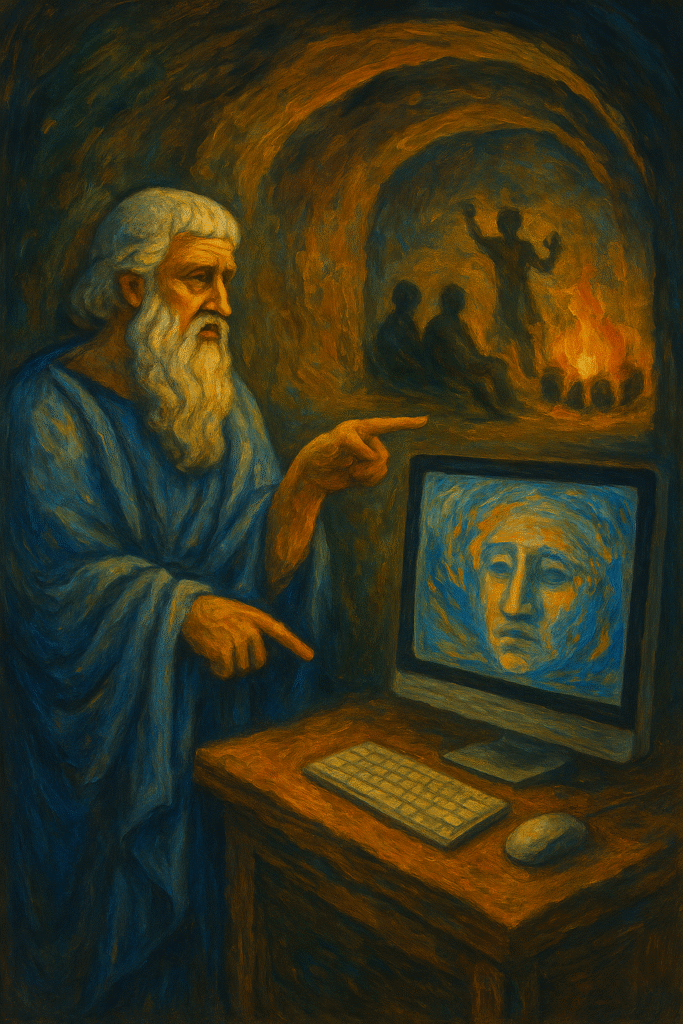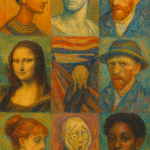In today’s digital age, asking, “What would Plato think of the Internet?” leads us to reflect upon his timeless work, Plato’s Allegory of the Cave. This allegory reveals deep insights into perception, reality, and the nature of knowledge, making it relevant when discussing the internet’s impact on society today. Within the framework of Plato Plato’s allegory of the cave and internet, we can explore an intriguing intersection between ancient philosophy and contemporary technology.
Understanding Plato’s Allegory of the Cave
Plato’s Allegory of the Cave serves as a powerful metaphor for the human condition. In this allegory, prisoners are shackled in a dark cave, only able to see shadows projected on the wall by objects passing in front of a fire behind them. These shadows represent a distorted version of reality, as the prisoners mistake them for the truth. This representation raises key philosophical questions about ignorance, enlightenment, and how we perceive the world around us.
1. Reality vs. Illusion: Just as the prisoners in the cave see only shadows, people today may engage with a manipulated version of reality through curated online content. This invites a discussion on the ethical implications of internet consumption.
2. The Journey to Enlightenment: Plato suggests that knowledge involves a painful journey out of the cave into the light of the sun, symbolizing true understanding. How does this relate to the information we consume online?
Plato’s Philosophy in the Digital Age
As we juxtapose Plato’s allegory of the cave and internet, it becomes clear that Plato’s thoughts on technology can guide us in navigating today’s digital landscape. Plato Internet philosophy suggests that technology, including the internet, can either enlighten or distract us. Here are some considerations regarding Plato’s relevance today:
* Philosophical Views of the Internet: The internet can democratize knowledge, akin to the light outside the cave. However, it can also perpetuate ignorance through misinformation and echo chambers.
* Plato and Online Discourse: Engaging in discussions online invites both the opportunity for enlightenment and the risk of deepening societal divides.
The Impact of the Internet on Philosophy
The internet has reshaped how we access, share, and interpret philosophical ideas. For instance, the wealth of resources available today provides unprecedented access to Platonic thoughts:
* Plato’s Theories in the Digital Era: Online platforms host diverse interpretations of Plato’s works, stimulating discussions that might not occur in traditional settings.
* Plato and Modern Communication: Social media can facilitate philosophical dialogues, making philosophical discourse more accessible to the masses. However, this can lead to superficial engagement rather than deep understanding.
Entre into the Light: The Ethics of Internet Technology
According to the Government Research Database, technology must be wielded ethically. Plato’s ethics emphasizes the importance of personal responsibility. This resonates in our digital interactions:
1. Critical Thinking: Users must critically evaluate the information they encounter online to avoid remaining in the metaphorical cave.
2. Digital Citizenship: Engaging responsibly online reflects moral choices synonymous with Plato’s belief in ethical living.
Engaging with Plato in the Digital Sphere
How can we practically apply these lessons from Plato Plato’s allegory of the cave and internet? Here are some actionable insights:
* Seek Reliable Sources: Look for established platforms and peer-reviewed articles on philosophy or related topics. Use Academic Research Portal for valid research.
* Participate Thoughtfully: Engaging in online discussions should involve respectful dialogue that seeks deeper understanding rather than mere debate.
* Foster Critical Communities: Join forums and groups that encourage thoughtful philosophical discussions and debates.
Conclusion: Bridging Ancient Philosophy with Modern Technology
In summary, as we explore what Plato might think of the internet, we recognize the profound impact of technology on our understanding of reality, knowledge, and ethics. Just as the prisoners in Plato’s cave are called to question the shadows they see, we, too, must question the information presented to us online. By merging Plato’s allegory of the cave and internet, we can strive for enlightenment amid misinformation. Let us embark on this journey, aspiring to transcend the shadows and embrace the light of knowledge in our digital age. Keep seeking new insights and learning from diverse perspectives.


